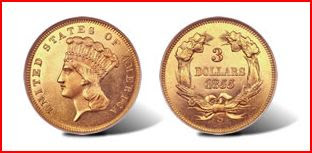 Irene Find by Pat D.
Irene Find by Pat D.
Here is one find from Irene. It appears to be something like the end of a spoon handle.
If you recognize the pattern or have any thoughts or info on the item, please let me know.
The last blog survey has concluded and the answers are in. It took me a little while to get around to reporting on the last survey because of Irene.
Of the categories included in the survey, most respondents purchased their last computer over the internet (34%). I guess that tells you where commerce is going.
About 53% of the respondents purchased their last computer either over the phone or internet. Which, of course, leaves 19% over the phone.
It is easy to find bargains using electronic sources, but it also leaves the buyer without a lot of customer support.
Although some of the mail order houses claim to offer customer support, when you actually need it, it is not very good. Often the person charged with handling requests for support don't really know the detector at all.
Still, 39% purchases their computer at a local detector store. A computer store is a good choice, especially for first time user. You can get demonstrations of detectors before you buy and return to the store for resolution of any problems. Of course, even some detector stores sell detectors which they are not real familiar with, but they usually know enough that they can help you figure out what is going on.
Unfortunately, even though I've asked online, I've not been able to locate any body on the Treasure Coast that repairs detectors. Although you still often have to return a detector to the manufacturer for repairs, a local detector store can help facilitate the process. And the turn around for service usually involves a period of weeks, making a back up detector highly desirable.
11% of the respondents bought their last detector used from another detectorist. That can be a way to save some money. When buying a used detector, I'd recommend getting a demonstration first in order to make sure the detector works well before you buy it.
Talking about customer service, here are a few tips you might consider.
Once when I had a broken battery holder I talked to the repair department of the manufacturer and told them the problem and suggested they simply send me a new battery holder. They did that because it saved them time and expense in receiving the package and diagnosing the problem before changing the battery holder.
Requesting a new part when the problem is obvious and the solution simple, can save both you and the manufacturer time and expense.
On another occasion when I sent a detector in for repairs multiple times and the manufacturer could not seem to identify the problem, I finally requested that they simply send me a different detector. They did that, it didn't have the problem, which was admittedly sporadic and difficult to find, and I was satisfied with the replacement detector, which I still use years later, even though it was not a new detector when they sent it to me. They said it was the personal detector of the owner of the company.
The company thought my problem might have had to do with radio interference in the environment, but when the replacement detector worked perfectly that showed that the environment was not the problem. A replacement detector worked out in this case for both me and the manufacturer.
Don't be afraid to suggest different solutions like this when you have problems gettng your detector repaired. Simply sending the detector back and forth repeatedly without resolution is a pain for both the owner and the manufacturer.
And remember, you don't need to ship the rod, but generally ship the coil and control box, and ear phones if that might be the problem.
Its a shame the repair situation for detectors is so inadequate. Even when repairs are done well, the turn around time of many manufacturer's leaves much to be desired. It is too bad there aren't more good reliable repair people around.
I guess it is like most electronics these days, they rather you buy a new one. Old detectors can work quite well though. A trusty old detector can be exactly what you need for certain situations.
Every detector has strenghts and weaknesses.
Do you know what coin became known as the "world currency?" Find the answer to that below.
Until a few years ago, no one seemed to know that the 1770 Nuevo Reino Pillar Dollar existed, however 14 of them were found when a parking lot in Bogota was bull dozed for a new building and the foundation of the Nuestra Senora del Pilar church was discovered.
Here is link to a great CoinWeek article that will give you the answer to the first question and more.
http://www.coinweek.com/news/world-coins/colombian-pillar-dollar/
Treasure Coast Beach Forecast and Conditions
As you know conditions on the Treasre Coast are back to poor.
Seas will be around two or three feet for the next several days.
There is one new named storm in the Atlantic but it is well away from us and won't affect us or a number of days if at all.
Happy hunting,
TreasureGuide@comcast.net



























 Four Tropical Waves.
Four Tropical Waves.



